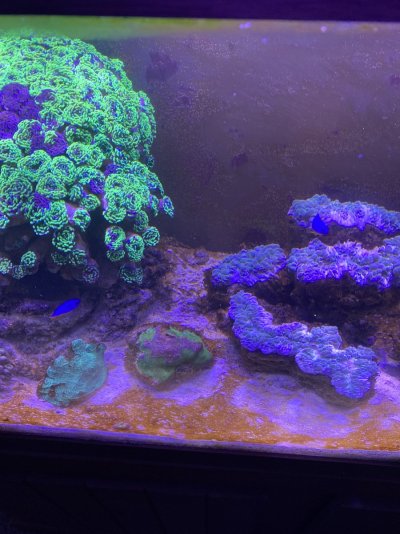- Joined
- Oct 25, 2017
- Messages
- 164
- Reaction score
- 88
I have 3 reef tanks running but for some reason I’ve got a huge outbreak of dinos No3 is zero, no surprise but po4 is .16 ? Thought both would be 0 but no, tank is 6 years old so this has me scratching me head, I know water changes don’t help they seem to have escalated it, can I siphon it out into a sock (no sump on this tank) to a bucket and put that water that has gone through the sock back ? Or is that not a good idea

















